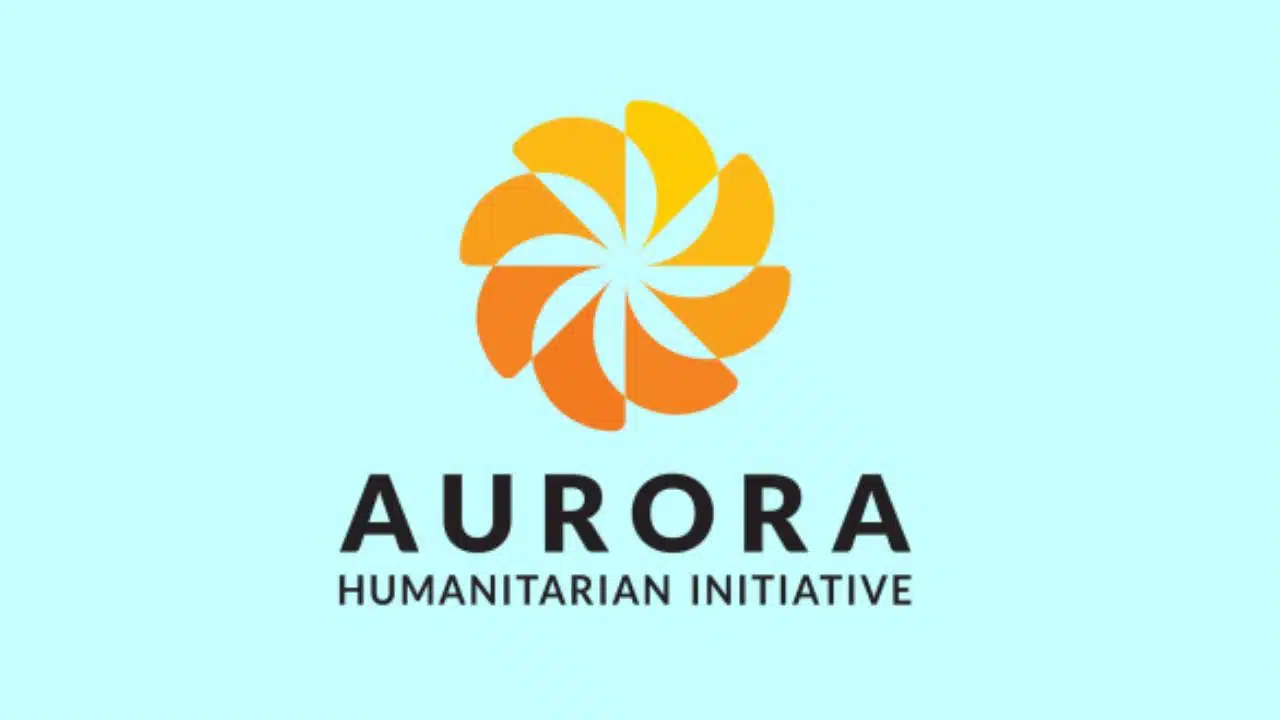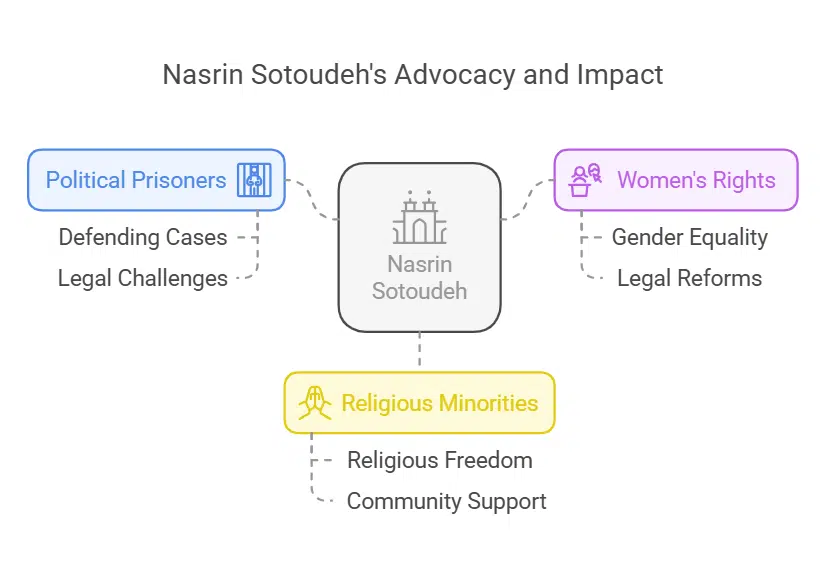The fight for human rights is a battle for dignity, equality, and justice. Around the world, millions face oppression, discrimination, and violence, but some individuals stand against these injustices with unwavering courage. The Aurora Humanitarian Initiative recognizes and honors such individuals who work tirelessly to defend fundamental freedoms and improve lives in the face of adversity.
In this article, we highlight some of the most prominent Aurora Luminaries and the humanitarian organizations they founded, including the Dalai Lama, Malala Yousafzai, and others. Dive in to learn about the contributions they’ve made to advancing human rights across the globe.
The Fight for Human Rights: A Global Perspective
Aurora Luminaries tackle a broad spectrum of human rights issues, especially in regions where authoritarian regimes, armed conflicts, and deep-seated cultural biases threaten fundamental liberties. They focus on several pressing human rights issues, including:
- Freedom of Expression – Defending journalists, activists, and dissidents against state suppression.
- Gender Equality – Advocating for women’s rights and the end of gender-based violence.
- Religious Freedom – Fighting for the right to practice one’s faith without persecution.
- Child Rights – Ensuring education and protection for vulnerable children.
- Legal Justice – Defending marginalized communities and promoting fair judicial processes.
Through grassroots activism, they play a crucial role in driving systemic change. Many of the Aurora Luminaries work within their communities, empowering individuals and amplifying their voices on the global stage. However, this work often comes at great personal risk, including imprisonment, exile, and threats to their families.
Profiles of Notable Aurora Luminaries in Human Rights
The Dalai Lama – A Lifelong Commitment to Compassion and Peace
As the spiritual leader of Tibet, His Holiness the Dalai Lama Tenzin Gyatso has dedicated his life to promoting non-violence, compassion, and human rights. Forced into exile after the Chinese occupation of Tibet, he has become a global advocate for the rights of his people and the preservation of Tibetan culture. Despite the challenges, he continues to call for dialogue, understanding, and universal responsibility.
Malala Yousafzai – Champion of Girls’ Education and Gender Equality
Shot by the Taliban at age 15 for advocating girls’ education, Malala Yousafzai became an international symbol of resistance against oppression. Through the Malala Fund, she campaigns for the right of every girl to receive an education, particularly in regions where access to schooling is restricted due to conflict and cultural barriers.
Nasrin Sotoudeh – Defending Political Prisoners and Women’s Rights in Iran
Nasrin Sotoudeh, an Iranian human rights lawyer, has bravely defended political prisoners, women’s rights activists, and religious minorities despite facing repeated arrests and imprisonment. Her unwavering commitment to justice has made her a powerful voice for human rights reform in Iran.
Abdulhadi Al-Khawaja – The Struggle for Democracy in Bahrain
A leading Bahraini human rights activist, Abdulhadi Al-Khawaja co-founded the Bahrain Center for Human Rights and has been at the forefront of the struggle for democracy and free expression. Imprisoned for his activism, he continues to inspire human rights defenders worldwide through his commitment to non-violent resistance.
Anuradha Koirala – Rescuing Victims of Human Trafficking
Anuradha Koirala, the founder of Maiti Nepal, has rescued thousands of women and children from human trafficking. Her organization provides shelter, rehabilitation, and legal aid to survivors while advocating for stronger anti-trafficking policies at both national and international levels.
Claudia Paz y Paz – Justice for Genocide Victims in Guatemala
As the former Attorney General of Guatemala, Claudia Paz y Paz prosecuted perpetrators of war crimes and human rights abuses committed during the country’s brutal civil war. Her groundbreaking efforts to hold those in power accountable have made her a beacon of hope for justice and reconciliation.
Azza Soliman – Legal Advocate for Women’s Rights in Egypt
Azza Soliman has dedicated her life to fighting gender-based violence and promoting women’s rights in Egypt. Despite facing persecution and financial restrictions, her legal aid organization continues to support women in need, advocating for legislative reforms and greater gender equality.
The Risks and Rewards of Human Rights Advocacy
Fighting for human rights often comes with immense personal sacrifice. Many Aurora Luminaries have been imprisoned, exiled, or subjected to harassment and intimidation. Despite these challenges, their resilience and dedication continue to inspire movements worldwide.
The rewards of their work are seen in the communities they impact, the policies they influence, and the awareness they generate globally. Their courage reminds the world that justice and dignity are worth the fight.
Global Influence and Lasting Impact
While at times locally-based, the work of Aurora Luminaries extends far beyond their immediate communities. Their advocacy efforts influence global policies, raise awareness through international media, and inspire new generations of activists. Collaborations with organizations like the United Nations, Amnesty International, and Human Rights Watch have helped amplify their messages and create meaningful change.
Aurora Luminaries have significantly influenced global human rights through their tireless advocacy, leading to impactful policy changes and legislative reforms. Figures like Abdulhadi Al-Khawaja and Nasrin Sotoudeh have brought international attention to oppressive regimes, prompting pressure from organizations like the United Nations for judicial reforms.
Claudia Paz y Paz’s pursuit of justice in Guatemala set a precedent for accountability in post-conflict societies, while Malala Yousafzai’s work has pushed governments to commit to improving girls’ access to education. Luminaries like Paul Farmer and Dr. Tom Catena have reshaped healthcare delivery models in crisis zones, influencing global health policies and improving access for displaced populations. Their efforts in advocating for gender equality, education, and refugee support have led to tangible changes that benefit millions.
Beyond policy, these humanitarians have empowered grassroots movements and inspired societal change by fostering local leadership and advocacy. From Shanta Sinha’s efforts in India to combat child labor and promote education to Azza Soliman’s legal support for women in Egypt, their work has strengthened civil society and influenced public attitudes. Collaborations with international organizations such as Amnesty International and the World Health Organization have amplified their impact, helping to shape humanitarian responses and reinforce human rights protections worldwide. The work of Aurora Luminaries serves as a powerful reminder that individual action, driven by resilience and commitment, can create lasting global change.
Bottom Line
The fight for human rights is ongoing, and the work of the Aurora Luminaries demonstrates the power of individuals to drive systemic change. Their unwavering commitment to justice, equality, and dignity serves as an inspiration to people worldwide. Through the courageous efforts of these human rights champions, the world takes small but significant steps toward a more just and equitable future.
Support their causes by staying informed, advocating for human rights, and contributing to organizations that work to protect fundamental freedoms.





































